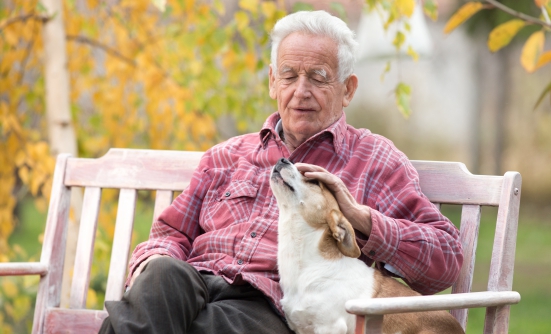Pets can completely change the outlook of patients with cancer by providing companionship and comfort. They can give patients with cancer a sense of purpose and help them overcome feelings of loneliness, depression, and anxiety. This is why pet therapy has become so popular, especially with children.
It’s natural, however, to question whether it’s a good idea to keep pets in your home while immunocompromised during cancer treatment. Let’s discuss which pets are safe, which ones are not, and what you can do to reduce risk.
What Pets Are Generally Safe or Unsafe During Cancer Treatment?
Your most popular furry friends, like cats and dogs, are generally safe. Cats and dogs that are clean, well-fed, and have been properly vaccinated present minimal risk for most patients with cancer.
Of course, that doesn’t mean there are no risks. Bites, scratches, licking, and cleaning up feces and vomit can pass an infection from a pet to a human. You can also pick up an infection by simply petting an animal.
Getting a new pet during cancer treatment can be tempting because it can lift one’s spirits, but it’s generally a bad idea. Puppies and kittens tend to be riskier because they’re more likely to bite and have accidents, so if you’re going to adopt, look for an older, well-behaved pet.
There are certain pets that patients with cancer should definitely avoid. Reptiles, chickens, ducks, and rodents often carry salmonella, which can be fatal for patients with cancer whose immune system has been weakened due to cancer treatment. Exotic pets that typically live in the wild can also be dangerous because they sometimes carry rare diseases.
What Can I Do to Reduce Risk?
Regardless of whether it’s a new pet or a long-time companion, bring your pet to the vet for a full examination, testing, and vaccinations, and speak with your doctor to make sure it’s safe.
Feed your pet healthy foods, keep them clean, and give them plenty of exercise. If you’re not capable of doing these things yourself, have someone do them for you. The healthier your pet, the less likely your pet will be to catch infections that can be spread to you.
Avoid kissing, snuggling, and rough play with dogs and cats during cancer treatment. Don’t share food, toys, or your bed. Keep pets inside as much as possible and don’t let them interact with other animals, especially wild animals and strays. Wash your hands after playing with or cleaning up after your pet.
For cats, keep the litter box away from eating areas and your bedroom. If you have a bird or fish, bird cages and fish tanks should be cleaned by someone else. This will keep you from inhaling dust and allergens that cause infections.
If you notice your pet is running a fever, vomiting, sneezing, not eating, or experiencing any other symptoms that would indicate a health problem, have someone take them to the vet right away. Keep your distance until you get a diagnosis.
Pets and COVID-19
According to the FDA, there is no evidence that animals play a role in spreading COVID-19 to people. There have been very few cases in which pets, including dogs and cats, have been infected after close contact with people who had COVID-19.
Because animals can carry germs and bacteria in fur and hair, it’s a good idea to follow the same guidelines as humans for preventing the spread of COVID-19. Wash your hands frequently, especially after interacting with pets and cleaning up their waste, avoid large crowds, and try to keep pets at least 6 feet away from other people.
Although pets and pet therapy can bring joy to patients with cancer during a physically and emotionally draining time, it’s important to know the risks involved. Speak with your doctor and seek help from a loved one so your furry friends can safely support your recovery.
Does your pet help you cope with your cancer treatment? Tell us how.
Get CONQUER: the patient voice straight to your inbox!















